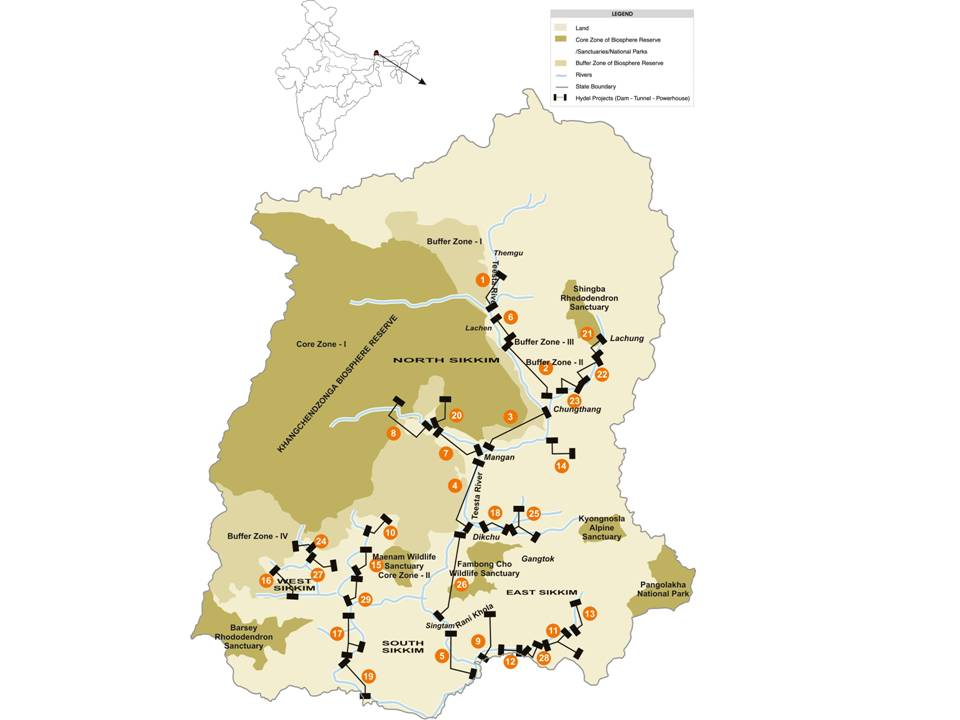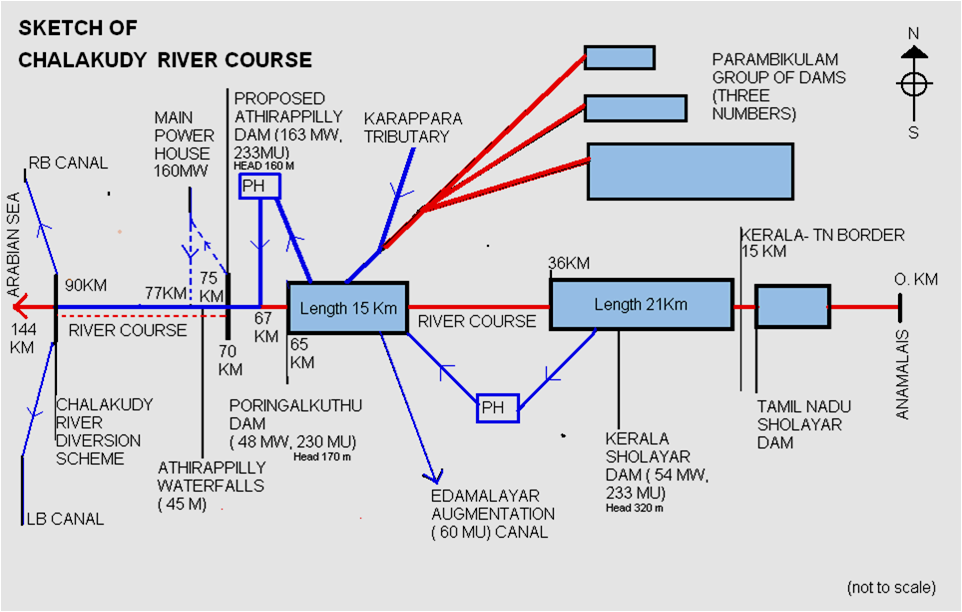This three day dialogue workshop on 'Mainstreaming river basin planning' held from 9th to 11th August 2011 in New Delhi intended to bring together activists involved in dam movements and other social and environmental movements, civil society groups, experts in water resources management, environment, river basin planning, officials from all the relevant ministries and departments and others concerned. Selected invitees from South Asian countries were also invited for sharing their views on transboundary issues.

This workshop aimed at:
- Having a comprehensive understanding of river basin planning and its critical importance
- Evolving or initiating a process to draft blueprint for mainstreaming river basin planning at the national level
- Developing an advocacy strategy to mainstream river basin planning issues
- Sharing experiences, ideas and concerns with respect to river basin issues
- Build a platform of individuals, civil society groups and concerned government agencies to deliberate on the issue
- Involving multiple stakeholders in the process of developing a blueprint on river basin planning
DAY 1
Ramaswamy Iyer began the discussion with an overview of river basin planning and also of why it is not easy and might not even be possible in India. Even if one moves away from considering a single cross-section to considering the entire stretch of a river, current techno-centric planning, will still leave a lot to be desired. Natural entities such as glaciers and aquifers have no place in river basin management, which often ends up as planning a number of 'projects' rather than a single project. Similarly, every river basin organisation has within it the seeds of an autocratic, top-down, centralised bureaucracy.
The following talks were delivered in the course of the first day.
Difficulties in adopting the Integrated Water Resource Management and Integrated Basin Planning concepts in India by A.D. Mohile (India)
This presentation highlighted the following topics:
- Unity and integrity of water resources
- Concept of ‘basin as an unit’, and its limitations
- Concept of ‘Integrated Water Resources Management'
- Indian water scenario
- Efforts, successes and difficulties in Integrated Basin Authorities in India
- Climate change related issues
- Conceptual, legal, political and limitations
Mohile described the following main limitations of considering river basins as an unit of development:
- The need for equitability among the various political units that form part of a basin may compromise IRBM
- Basin boundaries might be unclear
- Definition of a basin, especially with regard to its common terminus, has now been called into question
Ganga river basin environment management plan by Vinod Tare (India)
The Ganga river basin management plan takes its inspiration from a shloka in the ancient texts that enumerates the qualities of the Ganga. Accordingly, the plan focuses on:
- Uninterrupted flow
- Unpolluted flow
- Longitudinal, lateral and vertical connectivity
- Adequate space for various river functions
- River as an ecological entity
The strategies adopted by the consortium of IITs, to achieve these goals are detailed in the presentation.
From micro-watershed to river basin: Issues and prospects of up-scaling by K.J. Joy and Suhas Paranjpye (India)
This presentation included:
- Understanding watersheds and watershed interventions
- Evolution of watershed development polices and programmes in India
- Performance of watershed development programmes: Evidence from the field
- From micro-watershed to river basin: Way forward
This presentation explores the meaning of up-scaling watershed development to the river basin level. It especially explains the difference between tiling, that is, covering a river basin with a multitude of treated watersheds and nesting, that is, treating a river basin as a single watershed. So far, most interventions have been the former, however nesting is more efficient and also true to the spirit of river basin planning.
DAY 2
Master plan for integrated development & management of water resources of Godavari Basin by D.M. More (India)
The MMWRRA's (Maharashtra Water Resources Regulatory Authority) prerequisite to giving clearance to projects is inclusion of the said project in the state water policy. Preparation of a Godavari river basin management plan has been in process for the last two years, and is expected to be completed in the next 1.5 years. During these interim and final stages, the plan is being shared in the various sub-basins through meetings and workshops. This presentation goes through the process of creating the plan, its goals, and the issues covered by it.
Cumulative impacts assessments in river basins by Neeraj Wagholikar(India)
This presentation took the case studies of the Teesta and the Brahmaputra to explore the meaning of 'cumulative impact assessment' and 'river basin planning' as specified by the Supreme Court of India. The discussions cautioned that not starting the process till the definition of every term is finalised, actually negates the process, which is intrinsically one of dialogue, negotiations and iterations.
Some issues for trans-boundary river basin management/planning by Gopal Siwakoti 'Chintan' (Nepal)
The main issues when it comes to river basin management are access to information, true participation, environmental management, compensation, rights of local communities and benefit-sharing. These are even more crucial in the case of trans-boundary rivers. This presentation covers the following aspects of management of trans-boundary river basins:
- Legal framework
- Institutional arrangements
- Current scenario of non-cooperation between nations
It is clear that the principles, criteria and framework to ensure trans-boundary cooperation already exist. The main hurdle seems to be the political will for international water management, conservation and sharing. The options in that case, especially the role of non-governmental organizations is discussed.
Pollution management at a basin level by Vishwanath Srikantaiah (India)
This presentation begins with a definition of pollution, and the impact that urban thirst and pollution has on the water sources around it. It is proposed that smarter use of a city's roofs - which receive rainfall, air and sunlight - when combined with responsible sanitation measures like eco-san toilets can mitigate a large number of water and pollution problems and also grow food for the households. Calculations illustrate the amount of water saved by these technologies.
DAY 3
India's tryst with the big dams: The performance and future perspectives of large dams in the river basin context by Himanshu Thakkar (India)
While there is no credible assessment of the desirability of large dams, 66-80% of the water sector is still diverted towards large projects. This presentation speaks of the diminishing returns from large hydro and the reasons why. It questions whether large hydro-power projects deliver the performance expected of them. The effect of these projects on the communities that live along the rivers is also explained.
Are river flows to the sea 'a waste' by Latha Anantha (India)
The oft-repeated premise of water-planners is challenged. The downstream impacts of dams and other river modifications are listed here. A schematic representation of the Chalukudy river course illustrates the extent to which rivers are modified. Strategies and challenges for ensuring environmental flows in rivers are also listed.
Environmental flows and its assessment for upper stretch of river Ganga by Nitin Kaushal (India)
Environmental flows are 'the flows pattern required for the maintenance of the ecological integrity of rivers, their associated ecosystems and the goods & services provided by them'. This presentation details the process and results of an exercise to assess the required flow regime for the upper stretch of the Ganga, using the Building Block Methodology. Charts of the environmental flow regime at each of the three sections are also supplied.
Conclusion
The participants debated at length over the strategies, implications and challenges of river basin planning. It was perceived that the main stumbling block is not a lack of know-how, but a lack of political will. It was also proposed that for river basin planning to wait for a golden moment when all terms are fully understood, all political reservations are put aside for the greater good, and all conflicts are resolved, is an exercise in futility. Instead, civil society should take it upon itself to initiate a transparent sharing of information and honest dialogue which might pave the way for river basin planning to enter mainstream thought.
Related content:
Download the presentations below: